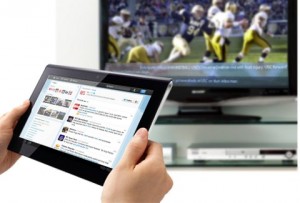Here at Sauder, UBC, most of my course readings are online articles. Out of five courses only one has a required book. In my home university it is quite the opposite, hence I began reflecting about the differences in reading from a computer/iPad compared to reading a paperback.
When looking around I found that I am not the only one interested in the comparison. Maia Szalavitz has written the article Do E-Books Make It Harder To Remember What You Just Read?*. Here she takes up different researches and findings regarding this particular subject. What I found as most interesting is that when we are reading from a computer more repetition is needed to inform the same kind of information, and when reading books we seem to grasp the material at a deeper level. This has partly to do with the lesser amount of associations and landmarks at a digital document compared to a paperback. This is important since it is easier to recollect memory that is based on various associations. Printed text in books or documents is easier to navigate through since it has a physical reference point, which an e-book and electronic document don’t have.
What also caught my attention is researches on that the grade of memory from an e-text is dependent on the size of the screen; small screens e.g. mobile phones makes it harder to remember than reading of e.g. a big computer screen. Regarding the reading-speed Jakob Nielsen has made a study in 2010 comparing the iPad and the Kindle with books. This led to the result that the iPad measured being about 6% slower than a printed book and the Kindle around 10% slower than print. After presenting the results they follow up by saying that due to a fairly high variability in the data it is hard to determine which device offers the fastest reading speed and that the only possible conclusion is that iPad still hasn’t beaten the printed book*.
I find the combination of lack in reading-speed and decreased memory highly interesting since it is something probably many people may experience now in the rise of new electronic solutions to books and documents. Of course there are many arguments for reading on an iPad or Kindle that one can weigh against the reading speed and memory, but it is important to keep in mind when investing in a Kindle or reading an important document from an iPad.
The fact that you most likely will be reading this post on either an iPad or smaller computer screen makes me question my whole idea of writing a post about this. I guess you just have to repeat it a couple of times!
* http://healthland.time.com/2012/03/14/do-e-books-impair-memory/


